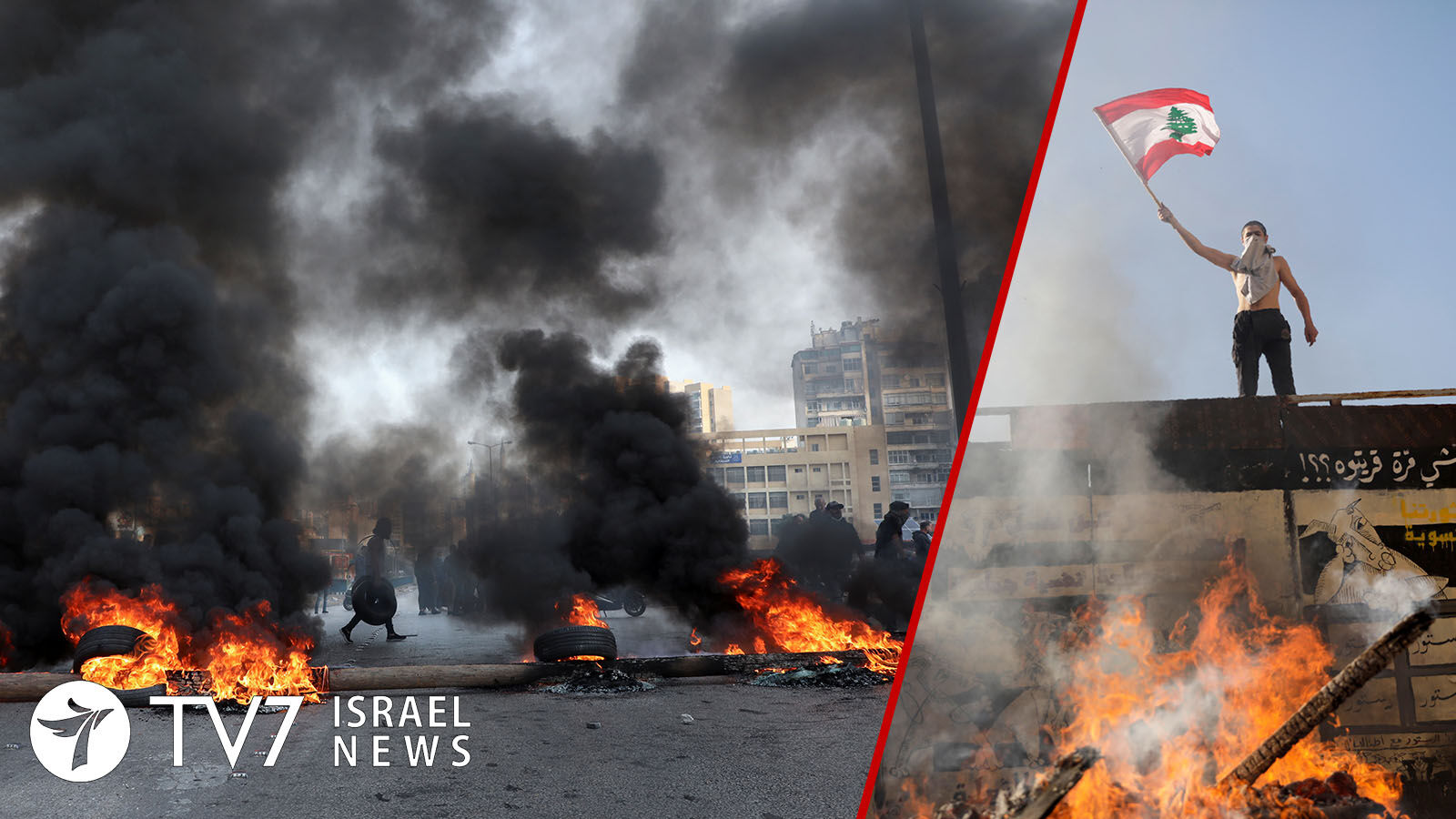Demonstrators blocked roads and set fire across Lebanon in protest at the country’s economic meltdown as the country’s currency plummeted to an historic new low.
By Erin Viner
Protestors erected roadblocks on city highways and intersections in central Beirut, Tripoli in the north, Sidon in the south and elsewhere yesterday. They burned tires and garbage dumpsters while demanding the government take action to stop devaluation of their money.
Lebanon’s economic crisis has impoverished more than three quarters of the population since erupting in 2019, with the Lebanese pound losing over 90% in value over the past 2 years. For the past week, the rate as hovered a about ل.ل 25,000 to the $1 (or € .00058) from a peg in 2019 of 1,500.
Government subsidies have been scaled down on almost all goods including fuel and medicine, pushing up prices as basic services such as healthcare disintegrate.
There has been little improvement in what is considered by many as the world’s worst national economic collapse in modern times since the government of Lebanese Prime Minister Najib Mikati was appointed in September after more than a year of political deadlock that further compounded the crisis. The primary ambition of the new cabinet is the revival of talks with the International Monetary Fund to unlock urgently-required foreign aid, but agreement on vital financial figures that is necessary to begin negotiations has yet to be reached.
Mikati’s government has been paralyzed over a dispute with the powerful Iran-backed Hezbollah terror movement over lead investigator Judge Tarek Bitar into the cause of last year’s deadly explosion at the Beirut Port. The cabinet has not convened since tensions boiled over at the last meeting on 12 October.
Lebanese President Michel Aoun announced yesterday that he opposes demands by the Shi’ite Hezbollah group to dismiss Judge Bitar.
Hezbollah and its Amal ally have accused Bitar of ‘politicizing the investigation’ after he wanted to question former Amal ministers over the 4 August 2020 blast, which killed more than 200 people .
Aoun also told Al Jazeera TV that he will step down at the end of his presidential term unless Lebanon’s parliament decides he should stay.
The Hezbollah campaign to remove Judge Bitar prompted the worst sectarian clashes witnessed in over a decade, evoking memory of Lebanon’s devastating sectarian Civil War that raged between 1975 until 1990.
7 people were killed at a boundary between Christian and Shi’ite neighborhoods in Beirut during a Hezbollah-called protest in October against a court-ordered refusal to remove Judge Bitar. Hezbollah accused Christian Lebanese Forces party Head Samir Geagea of orchestrating the violence in an attempt to ignite another civil war, which he vehemently denied.
